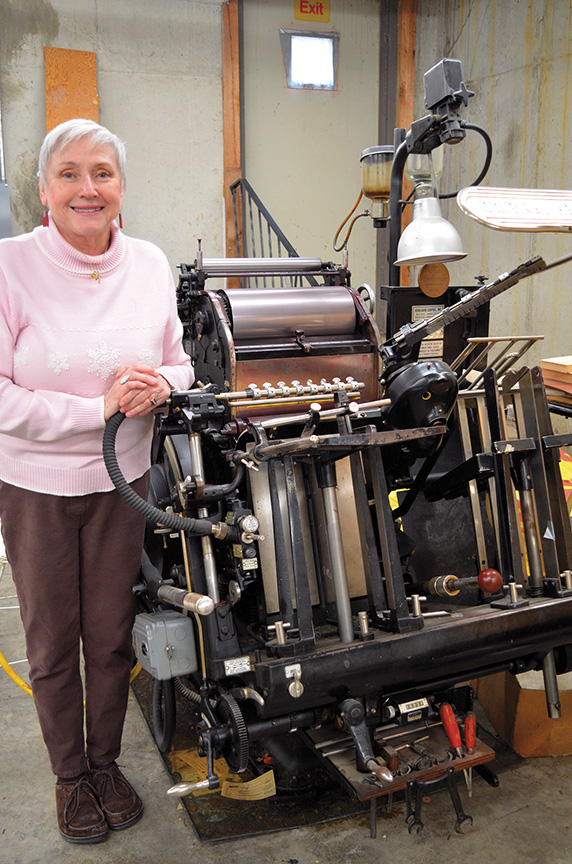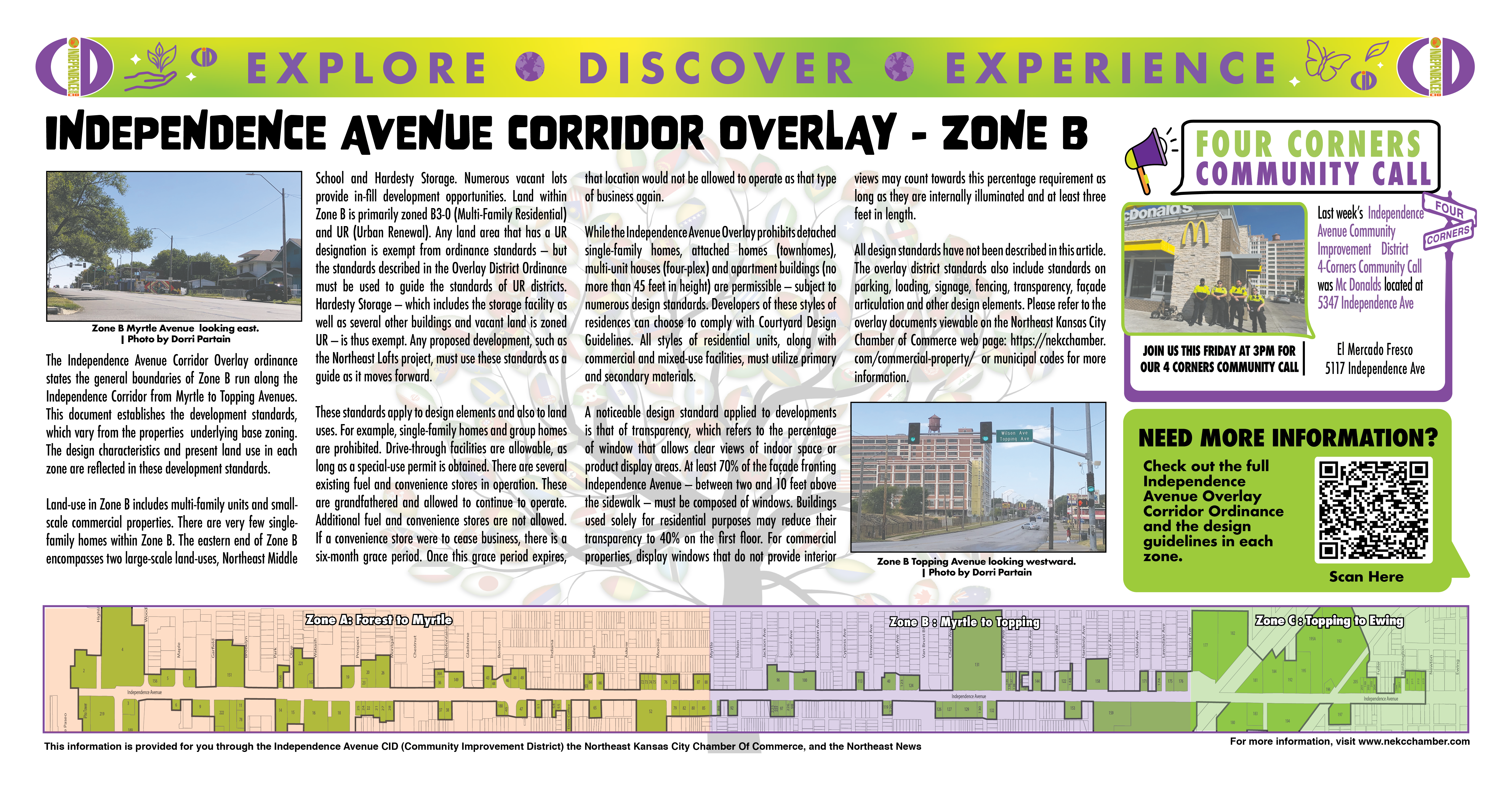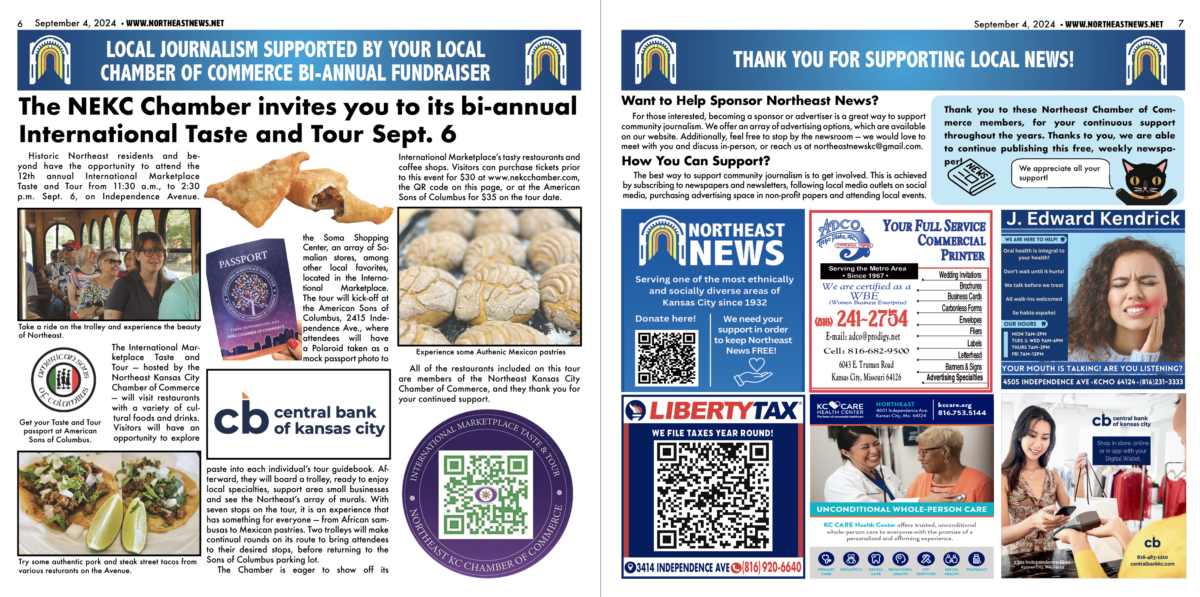
Elizabeth Orosco
Managing Editor
In 1971, Theresa “Terry” Cunningham was handed her father’s business, Adco Litho Plate, at the age of 18.
After suffering a major coronary, her father decided he couldn’t continue the business, but refused to shut down, handing it to Terry and her mother.
The story of how he came to start the business reaches back to WWII and across the Atlantic into Europe.
Chester, Terry’s father, was in the Army during the war, a time, Terry said, he never talked about unless it was to tell his love story.
Chester met Terry’s mother, Paulette, in Paris during the war and learned fluent French to be able to court her.
After the war, the couple married and remained in Paris to celebrate.
Paulette’s brother was a printer and took Chester to work with him one day, taking him up on the scaffolding of a printer to show him the process of printing large-scale military maps.
“He became enthralled,” Terry said.
After a year in Paris, the couple returned to the United States and settled in Marshall, Missouri, where Chester decided he wanted to become a printer.
Through the GI Bill, he was able to take classes during the day and drive taxi cabs at night to provide for his new bride.
Eventually, he moved to Kansas City and in 1967, he decided he was going to start his own business.
Chester started Adco Litho Plate as a lithographer.
“You couldn’t print without a plate back in those days,” said Terry. “Now, it’s all digital.”
Chester decided to expand into printing when he saw the overflow of the printing needs in the city.
Eventually, Adco Litho Plate was able to take on large clients in the city such as Sears, Montgomery Wards, and Safeway.
But after her dad’s health issues and becoming an 18-year-old female business owner in 1971, Terry said she was forced to “resell herself.”
“I was not accepted,” she said.
She recounted a story of talking to a long-time client after taking over the business, letting the owner know the situation and him being unsure if he was going to continue printing with Adco.
“You’re not going to see any difference between what you’ve gotten as a product that you get from me that you got from my dad,” she remembered telling the man. “I tell you the truth, you know who has been doing the work? My mom, me, and my sister,” she said.
“Alright,” he responded. “I’ll give you a try.”
Another instance, she recalled was the time Laidlaw acquired her client, Mayflower Contract Services.
After asking for a new logo to begin printing, Terry said the owner did not want to continue the contract, despite positive customer satisfaction and good prices.
“Is it because I’m a woman,” she said she asked him face-to-face. “It was dead silent and he just looked at me and I said ‘Oh, I see how it is.’ I lost a $20,000 a month customer because of gender. That’s how the world is sometimes.”
When asked what she would say to generations of women coming into their own business and facing the same challenges she did nearly 50 years ago, Terry said she would advise them to do business the old-fashioned way: in person.
“These days, you get no personal contact to get to know a person,” she said.
“You get an email or a voicemail. You cannot build that kind of business relationship with the method that we communicate with our customers today. If you can get face-to-face with them and become personal with them, I think a woman has a much better chance of maybe acquiring the business than over the phone or on an email because they don’t get to know you.”
As if the hurdle of being a female business owner in a male-dominated business world wasn’t difficult enough, Terry said she also had to continue to ebb and flow with the changes in printing, namely “going digital.”
It was scary and uncertain, she said. She began to hire young graphic designers to come in and help her transition into the digital age and would glean knowledge from them as the years went one.
Now, I’m a one-woman show who wears many hats.
As printing moved nearly completely digital, she said she got rid of her presses. In the large, open warehouse, black scuff marks outline the spot the presses once stood.
The only press Terry owns today is an old Heidelberg windmill press, still in working condition, but unused under a large tarp.
Uncovering it and turning it on, the motor hums, the flywheel spins, and the two arms rotated in a fluid motion— the grippers empty.
“There was a PBS special one time on television of the 100 greatest inventions,” she said. “The number one was the Gutenberg printing press because it gave information, news, and educated the masses. Now we’re going to be gone and obsolete. That’s sad.”
While her Heidelberg will remain covered in an empty warehouse, Terry said she is still hopeful for the future.
“I’m 67 and as long as I’m here, I will be printing. I’m the best-kept secret of the Northeast.”
Adco Litho Plate is located at 6043 E Truman Road and offers printing, binding, graphic design, layout, and other services.
For inquiries, stop by the shop Monday through Thursday from 8 a.m. to 4 p.m. and Fridays from 8 a.m. to 12 p.m., call (816) 241-2754, or email adco@prodigy.net.

















